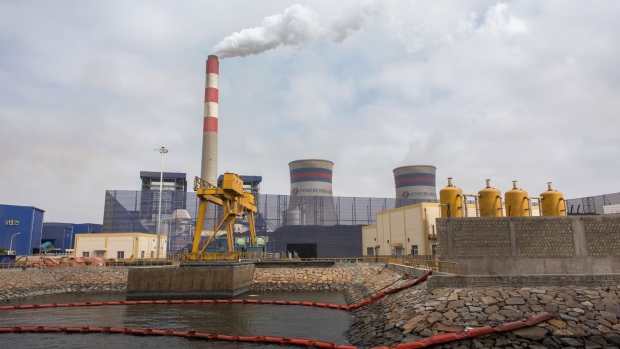Oct 27, 2021
China Could Build New Coal Plants Overseas Even After Xi Pledge
, Bloomberg News

(Bloomberg) --
Chinese state-owned enterprises have a massive pipeline of coal-fired power projects in more than a dozen countries and it remains unclear if they’ll be scrapped, even after President Xi Jinping’s pledge to stop building plants abroad.
New projects are in place to deliver almost 14 gigawatts of generating capacity, according to a report by Just Finance, a Denmark-based nonprofit that tracked building contracts and agreements. The state-run firms announced more than 3.6 gigawatts of projects this year alone, including about 1.3 gigawatts each in South Africa and Indonesia.
A total of 10 gigawatts of projects had previously been finalized and haven’t yet begun construction, according to the study, released on Wednesday. The pipeline spans countries across Southeast Asia, Africa and Europe.
The report helps illustrate China’s importance to curbing further growth in the use of the fossil fuel, and the need for specifics on Xi’s commitment — made at the United Nations General Assembly in September — that the world’s No. 2 economy will end support for coal developments overseas. Xi didn’t clarify whether he was referring to both the financing and construction of new coal plants, and what would become of existing projects at various stages of progress.
“There is a transparency problem for China’s overseas coal deals,” said Wawa Wang, program director at Just Finance. “It makes the monitoring of critical information specific to project appraisal, project status and financial disclosure difficult.”
Cutting the amount of power generation from coal is essential to achieving the Paris Agreement’s goal of limiting the rise in global temperatures. At the Group of 20 meeting this week in Rome and COP26 climate summit in Glasgow immediately after, world leaders will negotiate on an agreement to end overseas coal financing. The Group of Seven committed to the goal earlier this year.
Xi’s announcement at the UN significantly raises prospects for a global deal. But China’s pledge will be meaningless, unless the country “commits to a time-bound action and plan that addresses the fleet of overseas coal projects that it has facilitated,” said Wang.
Bank of China, one of the country’s four state-owned commercial banks, followed Xi’s pledge with a commitment to end financing for new coal mines and power projects overseas. However, that decision doesn’t cover projects where preparatory work had already begun.
Belt and Road
China’s pipeline of projects yet to break ground is equivalent to around 20 new plants, based on the typical 650 megawatt output capacity of many newly built operations. There’s also a further 16.5 gigawatts of China-led coal power projects already being constructed, according to Just Finance.
There have been some signals Chinese companies are already responding to Xi’s comments. Within hours of the announcement, Tsingshan Holding Group, a privately owned stainless steelmaking giant, said it would no longer build new plants overseas, only months after ordering three coal-fired units for an Indonesia development.
According to a report by The International Institute of Green Finance, a Beijing-based think tank, China didn’t fund any coal projects via its Belt and Road Initiative in the first half this year — the first time that’s happened since the BRI was launched in 2013.
©2021 Bloomberg L.P.


